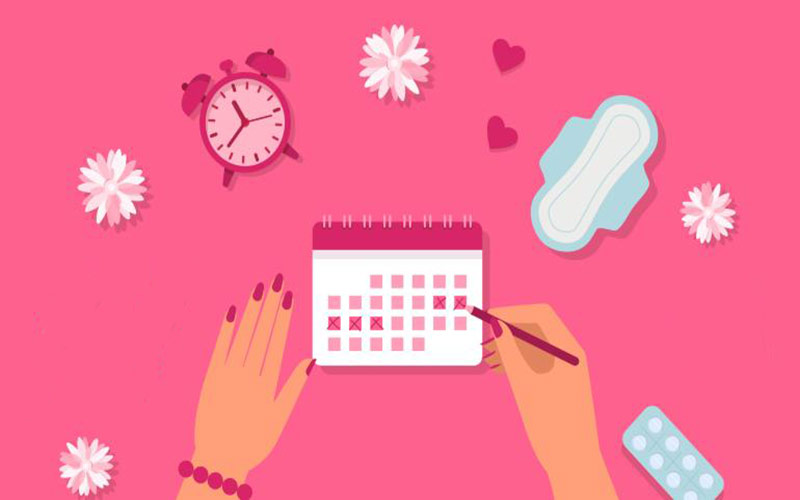For some women, trying to figure out when to expect their next period can leave them feeling left in the dark. For others, it comes around each month like clockwork. Fortunately, there are many different methods out there that can assist you with tracking your period – no matter which side you are on.

Whichever method you choose to use is up to you, and largely depends on your reason behind tracking your cycle Those who wish to track their cycles simply to know when to expect their periods will be fine using a tracking calendar or app. In other cases where more detail is needed, you might benefit more from using a journal.
Table of Contents
Period tracking apps
If you don’t know where to start when it comes to tracking your cycle, it may feel overwhelming. Period tracking apps are great for cutting through all of the guessing work. Generally, they work by first asking you a set of questions, like your age and the date of your last period. Then, they sync your answers to a calendar, calculating everything for you.
As you input your menstrual period each month, the app, its calendar and its information will balance out more accurately over time. Some apps may even take things a step further, asking for your daily thoughts, feelings, physical symptoms, and what you ate that day. What’s great about apps is that you can choose how much or how little of this information you’d like to record.
Calendars
These days, calendars come in all shapes and forms – from desk calendars to the small icon in the corner of your screen. This makes them an excellent method for tracking your cycle, regardless of how tech-savvy you are. These also work well for those who are in a hurry, tend to be distracted or forgetful, or don’t require much detail regarding their cycle.
If you tend to be one of these individuals, you might want to try sticking a simple calendar somewhere you’ll easily be reminded of it, like on your desk or fridge. Be sure to keep a marker or pen nearby, possibly even attaching it next to or nearby the calendar.
Journals
Much like apps, journals can be entrusted with as little or as much information as we see fit. They’re also portable and require zero digital skills, although digital journals do exist. Whichever you choose, journals are a great option for someone who has more time on their hands and wants to track their cycle in greater detail.
Journals written in great detail are also invaluable tools for doctors or anyone who may be looking to give you advice. This is because detailed accounts paint a far larger picture of what affects you as an individual.
This way, doctors may be in a better position to help you. This can be especially beneficial in certain situations. A few examples include those who are worried about an underlying medical condition, struggling with premenstrual or other symptoms, or trying to fall pregnant – just to name a few.
Are there any additional benefits to tracking my menstrual cycle?
In addition to those mentioned above, there are numerous other benefits to tracking your cycle. For example, doing so can give you extra protection when trying to avoid falling pregnant, although this method isn’t always foolproof.¹ It can also give you an indication of when to keep your sanitary items with you, ensuring you are prepared when your period arrives.
How do I calculate when my next period will be?
Generally, the menstrual cycle lasts for about 28 days. Although this is the average, it isn’t abnormal to have a cycle that is a few days longer or shorter.¹,² In fact, it’s actually quite common.
The easiest way to navigate a cycle that is irregular is to become well-acquainted with what’s normal for you. It also helps to teach yourself a thing or two about the menstrual cycle in general, like understanding its four stages and what happens to your body during each phase. The better you get to know your body, the better chance you will have of understanding your cycle.
As with any menstrual tracking method, start by marking off the first and last day of your period. Eventually, you should start to see a repetitive cycle begin to take form. If you don’t notice a consistent cycle taking place, be sure to keep an extra close eye on it. Most periods last between 3 and 7 days.
In many cases, a fluctuating cycle is nothing to worry yourself over. However, if something seems really off, let that be your signal that it may be time to get some professional medical advice.
Follow – https://lifefitnesstricks.com for More Updates